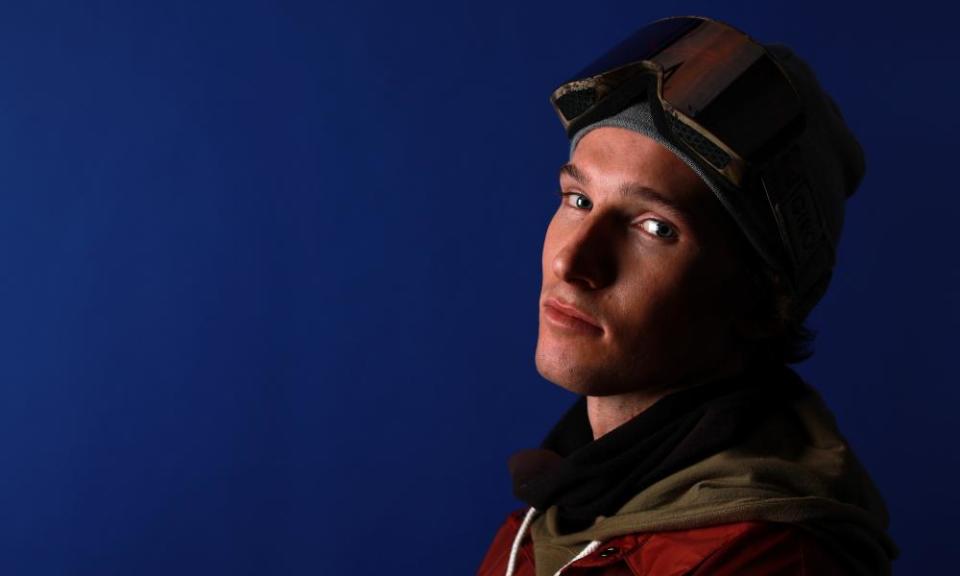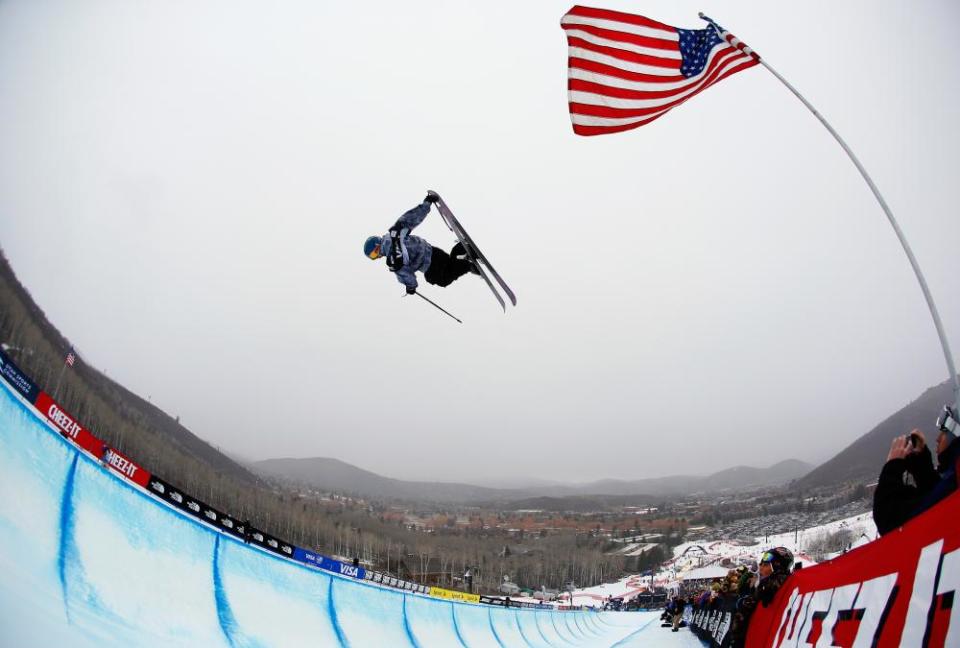After a near-death experience, Torin Yater-Wallace takes aim at Olympic gold

Torin Yater-Wallace persevered through family tragedy, life-threatening illness and devastating injury to earn a spot on the US men’s ski halfpipe team in Pyeongchang, where he will make his second Olympic appearance starting with Tuesday afternoon’s qualifying runs (Monday night in the United States). In many ways, his life resembles the countless heart-wrenching but ultimately uplifting narratives that crop up around each Games. These poignant stories, which give mainstream audiences a sense of personal investment in sports they watch once every four years, typically follow the same formula: it starts with a dream, then talent and hard work are added to the mix before a heaping amount of adversity is introduced to heighten the drama. It’s an effective emotional hook, conditioning viewers to reach for the tissues with Pavlovian regularity each time those bellowing trumpets lean into John Williams’ familiar Olympic anthem.
But Yater-Wallace’s story isn’t typical, and neither is the reason he decided to share it. The 22-year-old is not “reaching out for sympathy”, telling the Guardian that his choice to open up about his struggles is “more about empathy” and the potential to create greater understanding in the world. The skier proves that he, much like his free-spirited sport, can’t be reduced to a simple formula.
Yater-Wallace grew up in Basalt, Colorado, where he began skiing at age two. As a child, he learned the basics by practicing moguls and aerials, freestyle skiing’s more traditional disciplines that have been part of the Games for more than 25 years, before he gravitated toward the less restricted world of freeskiing, which includes the halfpipe and slopestyle events that only made their Olympic debut four years ago.
“Freeskiing as a whole was built on mogul and jump skiers who didn’t want to go to the Olympics or World Cups or do ski racing and just started doing tricks off of stuff,” he explains. “It was the rebellious thing. You’re really doing whatever you want.”
This individuality appealed to Yater-Wallace, who transitioned to halfpipe around the age of 12. But his middle school years were particularly turbulent after his father, Ron Wallace, was charged with fraud for a wine-selling scam that cheated clients out of millions of dollars. Wallace was sentenced in 2007 to five years of probation and two of home confinement, along with the $11m he had to pay in restitution, though he ended up serving time in federal prison for probation violations. The financial troubles threatened Yater-Wallace’s promising future in skiing.
“My ski career did not seem like something that was going to work out,” he says. “It’s an expensive sport, and we had literally no money.”

Yater-Wallace says he was only able to continue skiing because his mother, Stace, took on multiple jobs to support the family, often relying on food stamps to make ends meet. The young skier was motivated by this experience to work even harder, with the hope that he could help provide for his family. By the age of 15, his dedication and his mother’s sacrifice began paying off after he took silver to become the youngest Winter X Games medalist ever and started receiving sponsorship offers.
The endorsement opportunities have only grown since then, in part due to the massive increase in exposure the Olympics gave freeskiing. Yater-Wallace, whose portfolio of sponsors currently includes Toyota and Comcast Xfinity, says the Games introduced “a whole new realm of companies to a sport that might seem pretty niche to a lot of bigger brands”.
“I think it’s amazing that we’ve been given this opportunity to ski on such a large stage, with eyes watching around the world,” he says. “It’s given us a great opportunity to showcase our sport to a broader audience and hopefully inspire people to get involved.”
My ski career did not seem like something that was going to work out.
Torin Yater-Wallace
Yater-Wallace nearly missed ski halfpipe’s Olympic debut four years ago in Sochi, despite being one of the most heralded young talents in halfpipe, because of injuries that kept him from competing in the qualifying events. Initially, he was sidelined in late 2013 when his lung collapsed after being punctured by a physical therapist during a dry-needling session, a form of treatment similar to acupuncture. After undergoing surgery to drain his lung, the skier was released from the hospital on his 18th birthday and attempted to return to competition less than two weeks later, only to re-collapse his lung and break several ribs in a training crash. Still, he made it to Sochi after getting a discretionary spot onto the team. He finished near the bottom of the pack in 26th in the inaugural Olympic halfpipe skiing event, but Yater-Wallace says he felt “blessed at the moment” to be skiing at all.
He faced another health scare in November 2015, when he came down with a mysterious illness that multiple doctors said was only a common cold or the flu. When his health didn’t improve, he made a third visit to the emergency room, checking himself into the hospital and then waking up 10 days later after doctors put him in a medically induced state of paralysis. He was diagnosed with streptococcus anginus, a rare bacterial infection that caused an abscess to form on his liver and his lungs to fill up with fluid.
The infection nearly killed Yater-Wallace, who lost about 25lbs and needed three months to recover. His main concern at that point was being able to stand up and support his own weight. Once he could walk again, he started thinking about returning to the halfpipe. Two months after being released from the hospital, Yater-Wallace won gold at the Oslo X Games.
The skier’s recent health issues have been much more mundane – a nagging foot injury that he’s been dealing with for a long time. He is hoping to compete at 100% percent in Pyeongchang, where he enters as a potential contender after taking bronze at the X Games last month.
Even if his story isn’t neatly wrapped up with an Olympic medal, he hopes that others will still be inspired by his harrowing journey. Despite the unconventional twists and turns, the moral at the heart of his story is a familiar refrain, one that’s repeated frequently by Olympians but takes on greater meaning when Yater-Wallace delivers it: “Dreams definitely do come true.”

 Yahoo Sport
Yahoo Sport 





































